Sitting near the back of a small village church in rural Poland last weekend, I felt deeply honoured to be attending the wedding of a young Polish couple.
The air was filled with joy. But as I soaked in the celebratory atmosphere, I couldn’t help but reflect on my personal connection to the place, and how my life had led me to this emotionally charged moment.
Almost 103 years ago, in this very church, my grandad was baptised.
As a child in the 1930s, he sat here during his father’s funeral following a tragic sawmill accident.
It was from this village, following the invasion of Poland in 1939, that my teenage grandad, a young Polish Catholic, was deported to Nazi Germany as a forced agricultural labourer. Amid many stories, he escaped twice and joined Polish fighters.
At one stage, a memorial service was even held for him in this church, following reports he’d been killed. He later wrote to his mother, confirming he was very much alive.
Why did my grandad never return to Poland after the Second World War?
Despite surviving the war, my grandad never returned to Poland.
His mother warned him to stay away as Stalin’s Soviet regime executed or deported many returning Polish patriots.
Instead, he made a life in Fife after arriving at Annsmuir displaced persons’ camp, near Ladybank in 1948.
Soon after, he met my granny, and the rest, as they say, is history.
As the wedding unfolded, I thought about the years that had passed since the war and the winding path that had led me to this beautiful moment.
I also thought about my own journey, one that started two decades earlier, right outside this very church.
It was 2003, and I had made my first trip to Poland.
By this time, my grandad, who died in 2004, was in a Fife care home, in the latter stages of dementia, and I felt compelled to connect with his roots.
When my flight landed in Krakow, it was strange to know that I was the first in my family to set foot on Polish soil since the war.
With little more than curiosity driving me, I caught a bus that took me to my grandad’s village, located about 20 kilometres north of Krakow.
I had hoped to find some graves, take a few photos, and reflect on the life my grandad had left behind.
My roots in Poland brought me to a bus stop in 2003. How did that change everything?
But as I prepared to leave, fate intervened. A group of men, gathered near a shop, noticed me. One of them, struggling with broken English, asked, “Do you have family here? What’s the surname?”
“Kulesza,” I replied, showing him an old photograph of my grandad from the 1940s.
The man almost choked on his drink. “Kulesza? I’m a Kulesa (sic)!” he exclaimed, stunned.
What followed next felt like something out of a movie.
Unable to communicate fully due to the language barrier, the man phoned his wife, who worked in Krakow and spoke better English.
Through her translation, I learned that his father might be able to help me.
Though I had missed the last bus back to Krakow, I put my trust in him and agreed to go.
Within an hour, I found myself on a dusty road, standing outside an old cottage.
Emerging from a woodshed was an elderly man. It turned out this my grandad’s younger half-brother, still living in my grandad’s childhood home.
He was visibly shaken when he understood who I was, and as tears streamed down his face, he embraced me.
It turned out that his last memory of my grandad was seeing him being loaded into the back of a Nazi truck, never to return. They hadn’t seen each other in 64 years. He later told me troubling details of the Nazis’ reign of terror.
How did my roots in Poland result in Polish wedding invitation 21 years later?
That day was transformative. Though my grandad’s brother and his wife have since passed, their memory lives on in that village.
Last weekend, before attending the wedding, I visited their grave in the village cemetery, along with the resting place of my great-grandparents.
I felt the deep connection between past and present, a bond unbroken by time.
It was through the help of the man from the bus stop and his wife that I was able to piece together this part of my family history.
Over the years, we stayed in touch.
So, when I recently received an invitation out of the blue to attend their eldest daughter’s wedding with my own family, I was both honoured and humbled.
The wedding itself was beautiful, an emotional occasion that seemed to bring everything full circle.
I was the only person wearing a kilt, a nod to my Scottish roots, but I was treated like family.
Older guests at the reception came up to shake my hand, already familiar with my grandad’s story.
It was clear that my grandad’s presence was felt, even among those who had never met him.
Cousins of the bride’s father said we were probably related as the ‘Kulesza’ v ‘Kulesa’ surname discrepancy was simply a local administrative error, lost in the mists of Poland’s turbulent history.
My roots in Poland, going full circle
As I sat there, it struck me how life had woven itself into a circle.
Despite the chaos and tragedy of war, here I was, celebrating life, love, and new beginnings in the very church where my grandad’s journey had begun.
Before leaving, I was taken to see the font where he had been baptised.
The horrors of the past cannot be undone.
But for a story rooted in war and displacement, it felt like the ripples of history had come full circle, and that love and goodness had prevailed.
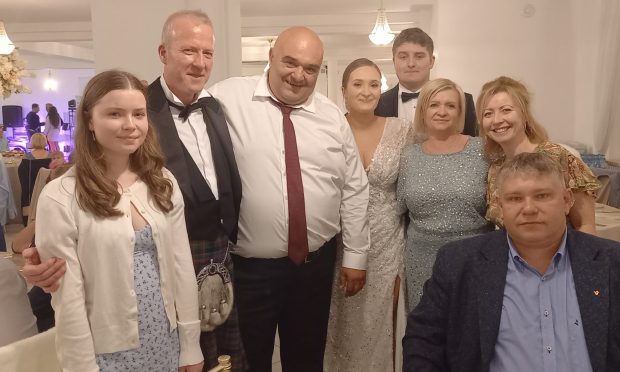
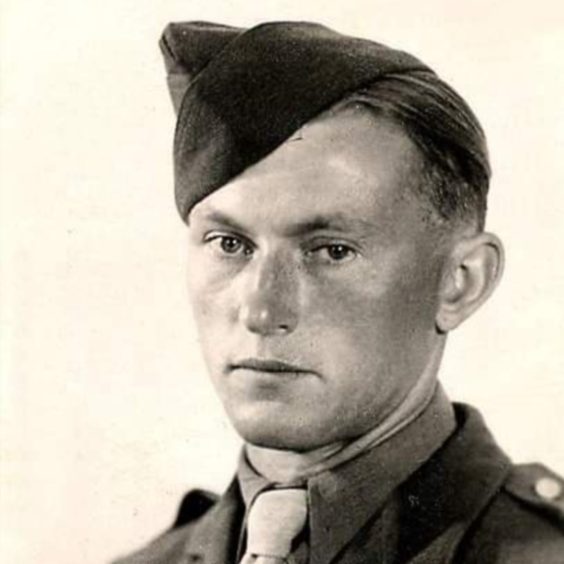
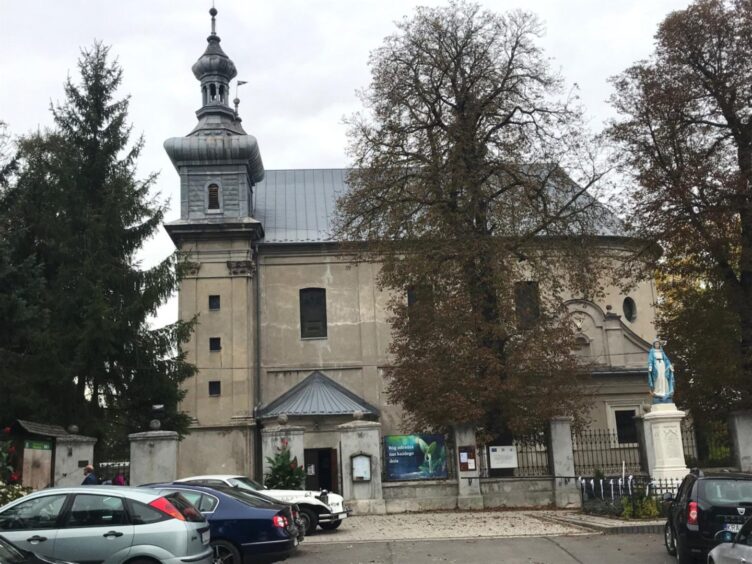
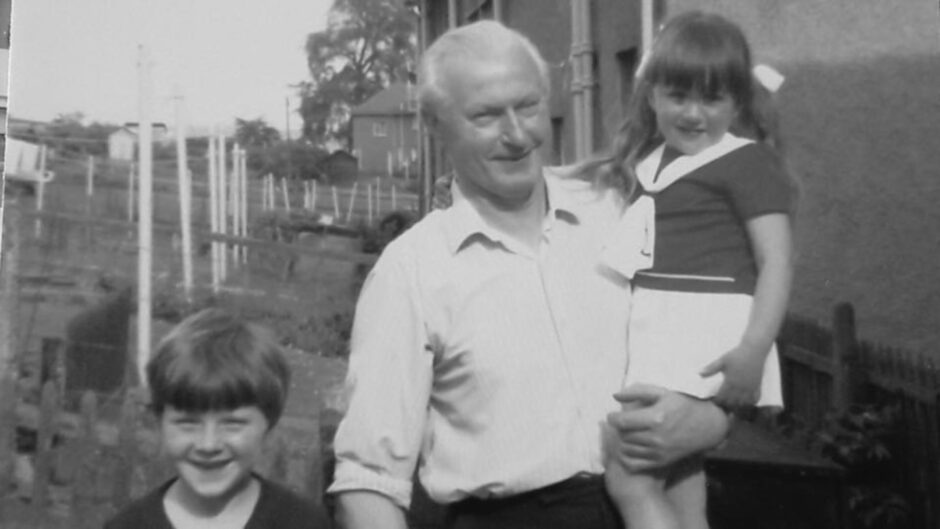
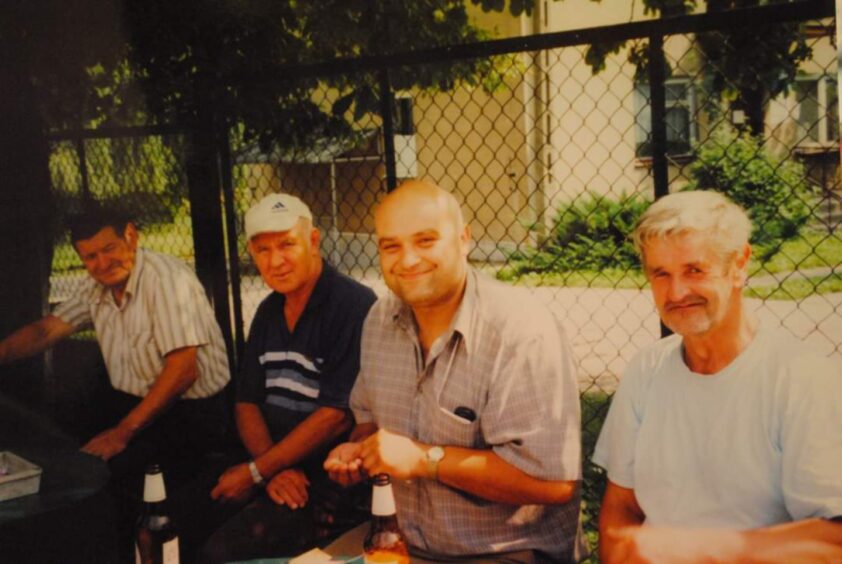
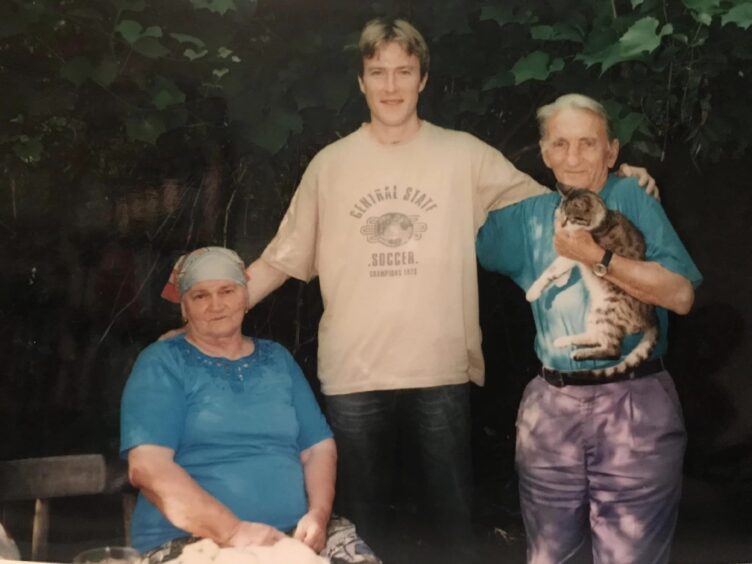
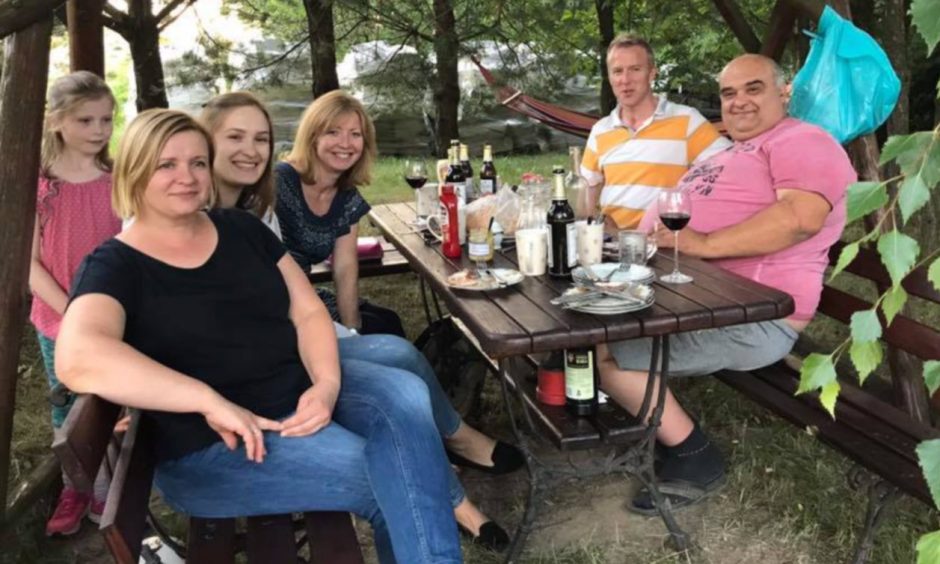
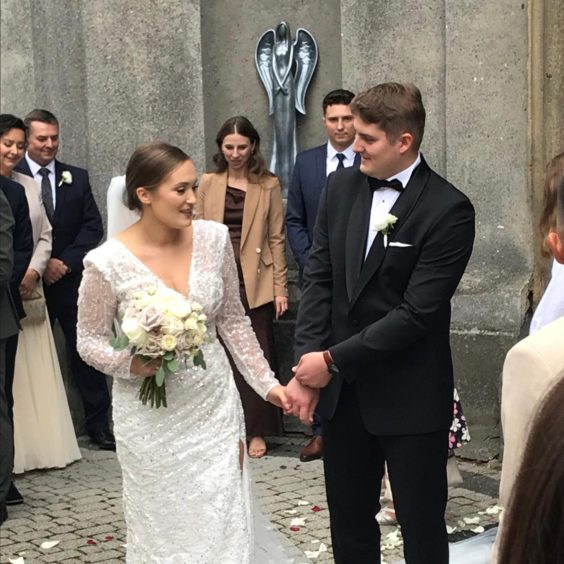
Conversation